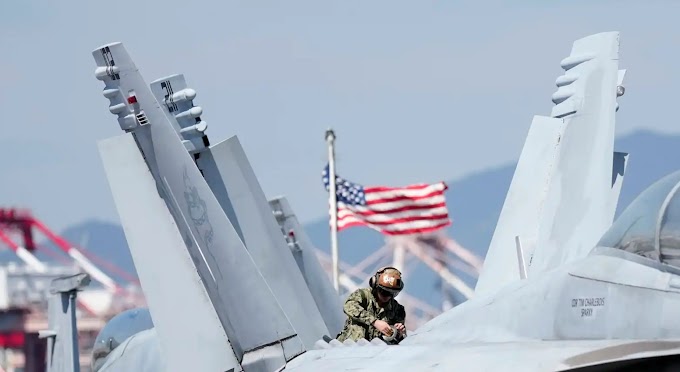US NASA director: The competition for the Moon is becoming increasingly fierce, and if China gets there first, it may become its own.
 |
| NASA's Orion spacecraft flies by the Moon. (December 5, 2022) |
NASA Administrator Bill Nelson has warned that the US-China race to the Moon is intensifying, and the next two years could determine who has the upper hand. If China beats the U.S., China may claim the Moon as its own.
Nelson, a former astronaut and Florida senator said in an interview with the U.S. media "Politico" (Politico) on Sunday (January 1) that Beijing may establish a stronghold on the Moon and try to monopolize the resources on the surface of the Moon The most prosperous locations, or not even letting the U.S. in.
"It's a fact: we're in a space race," Nelson said. "We'd better beware that they're not going to go to a place on the Moon under the guise of scientific research, it's true. They may say, 'leave; we're here; this is our turf'."
Nelson said that China's military expansion in the South China Sea foreshadowed that. He said, "If you question this, look at what they are doing in the Spratly Islands (called the Spratly Islands in China)." According to the
Report recently released aerial pictures show China has disputes in the South China Sea. The Spratly Islands set up new military installations.
NASA completed the Artemis I mission (Artemis, the goddess of hunting in ancient Greek mythology) in November last year, involving an unmanned flight around the Moon by the manned spacecraft "Orion". The mission's Artemis III program will land astronauts on the lunar surface by 2025.
China recently completed the construction of its new "Tiangong Space Station," sending astronauts to the space station last November. Beijing plans to launch three lunar missions over the next decade as part of China's "Chang'e Lunar Exploration Project." Earlier, China claimed to have discovered a new lunar mineral that may be used as an energy source on the Moon and named it "Chang'e Stone."
Nelson, the head of NASA, said China had achieved "great success" in its space program over the past decade.
Currently, the National Aeronautics and Space Administration NASA is cooperating with the Space Exploration Technology Corporation (SpaceX) owned by the world's richest man Elon Musk on the Artemis III mission. Nelson said he asked about the progress of cooperation with SpaceX every day, and all the answers were that they were completing all planning goals.
Nelson's tough stance on China's space program comes at a time when Congress has just passed NASA's full-year budget. NASA didn't get all the funding requested, but Nelson insisted they got what "must have," including key components of the future Artemis II and III missions.
The report said that any major delays or missteps in the U.S. lunar space program would risk falling behind China. NASA's plans to land on the Moon have been pushed back by a year.
Likewise, the U.S. military is alarmed by the security implications of China's foray into deep space. The U.S. military has expressed growing concern that space systems developed by Beijing could threaten U.S. satellites.
In a recent report to Congress, the Pentagon highlighted a series of recent leaps forward in China's space program.







